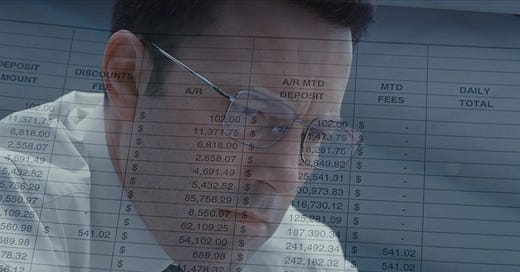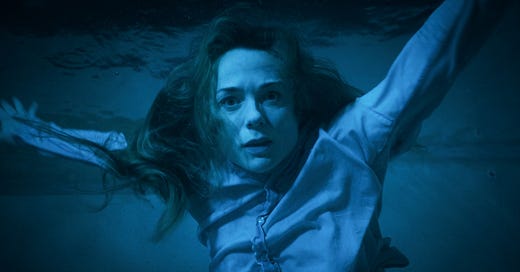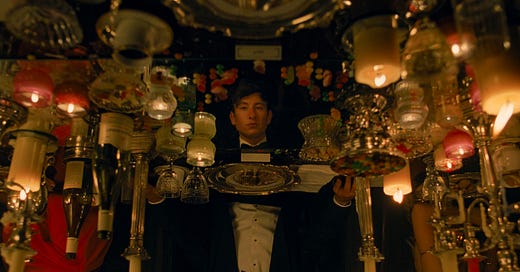
When Should Audiences Be Accountants?
Looking at the economics of moviemaking beyond budgets and box office.
There is a tendency among some film fans to treat movies like sports. A movie opens, and if it’s a hit at the box office, then it “wins” and if it flops, then it “loses.” This is a simple and poor way to appreciate art and removes any deeperengagement. “Numbers don’t lie,” as the saying goes, although anyone who has tried to recoup “net profit” from a movie will tell you that numbers lie all the time. Looking solely at budget versus box office returns also obscures intangible wins and artist successes. I wasn’t a huge fan of Mickey 17, but I don’t work for Warner Bros. Pictures. I couldn’t care less if director Bong Joon Ho took a lot of their money and failed to light up the box office with it.
Here are a few things I’ve learned about box office in the years I’ve covered movies:
Almost every theatrically-released movie makes its money back eventually because there are too many revenue streams. The box office returns don’t include post-release sales, future rentals, etc. While some of those streams have lessened or dried up, if you’re only looking at budget and box office, you’re missing the big picture (this also cuts both ways as those two figures fail to account for prints and advertising).
There are plenty of reasons films flop, and some successes defy easy explanation. To quote William Goldman’s famous maxim, “Nobody knows anything.” Some titles may be more resilient at the box office than others, but every trend or franchise trails off at some point. Captain Marvel made over a billion dollars at the box office in 2019 and its sequel, The Marvels, only grossed $206 million. If you think that’s solely down to the quality of thefilms themselves, you’re not watching the movies or the marketplace.
For almost the entirety of their existence, major studios have been, like other giant corporations, risk-averse. Mickey 17 may have been “riskier” compared to Warner Bros. upcoming Minecraft movie, but $118 million to the Oscar-winning director of Parasite for a sci-fi comedy starring the guy who also plays Batman is not an insane bet.
Talking about budgets and box office for theatrical features bores me because it fails to grasp the contours of the business and that mode of distribution.
And yet I remain fascinated by what streamers will spend because it’s not only a relatively new model but also because it remains such a black box of information despite various drips and drabs viewing data. Considering that streamers continually raise their subscription rates and argue that their audiences should always stay subscribed, the transaction never ends at a single ticket purchase. A streamer could go as far as to argue that they’re spreading their spending risk across not only all their subscribers but that every permanent fixture in their library creates a long-tail benefit that can’t be properly assessed at the time of release.
This brings us to Netflix spending $320 million on Joe and Anthony Russo’s The Electric State. It doesn’t look like a $320 million movie, but I believe that if you have directors who aren’t 100% sure what they want and are constantly readjusting VFX, then it becomes a $320 million movie. Watching The Electric State, I remembered The Creator, a similar robots-vs-humans movie that also isn’t very good, but director Gareth Edwards has a background in VFX, so that movie only cost $80 million because he knew how to keep costs low. Netflix presumably had no problem giving The Russos a blank check because they previously directed the last two Avengers movies, and there are no box office receipts to check.
I assume Netflix argues that spending $320 million is no big deal because that’s what blockbusters plus distribution costs anyway (it isn’t; Barbie cost $145 million and even if you generously double the budget to account for prints and advertising, you’re still $30 million shy of one Electric State), and now it gets to live on Netflix forever as a permanent draw for…well, I’m not sure who. People who want something on in the background or people who want to watch a Spielberg movie but don’t want to pay $4 to rent E.T. or Ready Player One.
So why is it worth interrogating what Netflix spent on The Electric State and not minding what Warner Bros. spent on Mickey 17? I’d say it’s because Mickey 17, aside from its multiple revenue streams, is not building its business model on smoke and mirrors. We don’t have to interrogate how it recoups costs because we have decades of understanding how that works. If you want to play CPA per project, that’s your business, but it seems like a waste of time unless you’re a shareholder or literally in Warner Bros. Discovery’s accounting department.
But for Netflix, we need to look at the whole picture and ask why a company with so much money is devoting its resources in such a sloppy fashion. They’re getting hosed, and since they don’t have a variety of revenue streams, that means subscribers get hosed when prices go up to cover the next dumb thing. Either this is a business where you’re expecting to get a return on your investment, or you’re just lighting money on fire and asking shareholders to marvel at the glow.
I’m sure Netflix will claim that The Electric State is a massive hit. I know this because they did the same thing for the last Russo Brothers’ movie the directors made for the streamer, The Gray Man. That film cost $200 million (Netflix’s largest film commitment at the time) and after its release, Netflix sent out a splashy press release saying the film was the number one movie in 84 territories, and they were moving full speed ahead on a Gray Man Cinematic Universe. The Russos were going to direct the sequel and Stephen McFeely (one of two writers on Avengers: Endgame) would handle the screenplay. And where are those guys now? They’ve all decamped to work on Avengers: Doomsday and Avengers: Secret Wars because no one cares about The Gray Man.
If studios want to spend hundreds of millions on slop, I suppose that's their business, but Netflix doesn’t get to exit the conversation simply because they don’t have box office returns. If The Gray Man was a success, why was it so rapidly abandoned by all involved? If The Electric State is worth $320 million, then is that the price tag we should expect for future mockbusters from Netflix? I know what kind of business Warner Bros. is running when they give money to Bong Joon Ho. I can’t say the same for Netflix.
















